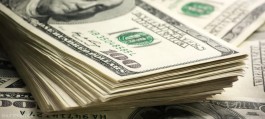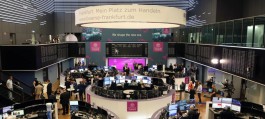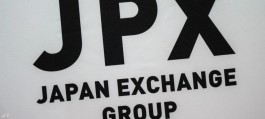US stocks had a difficult start to the year, with traders clinging to their bets that a March interest rate cut was still on the cards, after a series of mixed jobs and services sector data.
The S&P 500 index rose 0.2%, ending Friday's trading with the worst week in the stock market since late October. This halted the wave of continuous gains that lasted nine weeks. The Nasdaq 100 also rose slightly after five days of decline.
The pessimistic tone of the holiday-shortened week indicates that stocks will experience extreme volatility in the first half, according to Tom Lee of Fundstrat Global Advisors, noting that the jobs data is adding to the misery in early 2024 trading.
“The first four trading days of 2024 have been a rough start for stocks,” Lee wrote in a note to clients. “January trading tends to shape the year’s trading. This means we must prepare for a challenging year after the turmoil we saw in the first week.”
The strategist, who was one of the few to predict stocks would rise last year, still expects a rally in the latter half of 2024.
Richmond Federal Reserve Bank President Thomas Barkin said Friday that the labor market is moving in a continuing decline pattern. Earlier this week, Barkin declined to provide a forecast on when the Fed would cut interest rates for the first time, while advising: We have to prepare... This is the appropriate safety protocol even if you expect a soft landing.
Volatile market and mixed numbers
Stocks lost momentum after an early rise on data showing the US services sector slowed in December, but it remained above a key level indicating expansion.
Treasuries resumed their decline in Friday's volatile session, recording a weekly decline. The yield on 10-year bonds was 4.04%. US bond prices fell after previous data showed non-farm payrolls rose by 216,000 jobs, a larger-than-expected increase, and the unemployment rate stabilized at 3.7% in December.
The jobs report initially tempered bets on the Federal Reserve making faster and deeper interest rate cuts. But swap traders eventually reshaped bets on nearly 140 basis points of monetary easing this year, amid a roughly 70% chance of a rate cut in March. Some on Wall Street maintained confidence in the central bank's ability to calm the economy while avoiding deflation.
“The economy is clearly strong enough so far to withstand the current high Fed interest rates,” said Jeremy Stroup, CEO of Coastal Wealth.
Treasury Secretary Janet Yellen was also optimistic that the global economy was on the right track, after she announced that the United States had achieved a long-awaited soft landing.
But many were skeptical about the prospect of deeper interest rate cuts after the jobs report, noting that the challenges lie in the details. The reports did not change the opinions of Goldman Sachs and JP Morgan economists, as the banks confirmed their expectations for interest rate cuts.
Data casts doubt on March cut
Lindsay Rosner, portfolio manager at Goldman Sachs Asset Management, said: This data casts doubt on the market’s confidence regarding a rate cut in March. However, we are waiting for three inflation readings between now and the March meeting. Every number is important.
Investors will receive new data next Thursday, and consumer inflation for this year is expected to reach 3.2%, according to economists surveyed by Bloomberg. Investors will also be watching the financial sector next Friday, as JPMorgan and other banks begin announcing their earnings.
The stronger-than-expected jobs report gives the Fed plenty of flexibility to delay interest rate cuts as early as 2024, said Ian Lingen of BMO Capital.
Adam Crisafulli of Vital Knowledge was more cautious, saying: Hourly wage growth is up, participation rates are down, all of which indicate that markets are far from realistic in what they expect from monetary easing by the Federal Reserve in 2024.
Corporate news:
Earlier, Citigroup strategists recommended buying global stocks in times of decline, and advised not to chase the rise because the current year does not offer opportunities for rise like 2023.
In terms of corporate news, Tesla is recalling more than 1.6 million cars in China due to problems related to the driver assistance system.
Deal talks heated up on Friday. Synopsys is in advanced talks to acquire engineering software provider Ansys for about $35 billion, while Southwestern Energy and Chesapeake Energy are close to a $17 billion merger, according to reports.
In China, shadow banking giant Zhongzhi Enterprise Group has filed for bankruptcy protection. The fall marks one of China's largest corporate collapses ever, adding further pressure to already fragile consumer and investor sentiment.
The dollar fell on December reports. Oil prices rose, consolidating their weekly gains, as rising tensions in the Middle East and North Africa overshadowed signs of weak US demand.
Performance of the most important indicators:
- The S&P 500 rose 0.2% as of 4pm New York time.
- The Nasdaq 100 rose 0.1%.
- The yield on the 10-year Treasury note rose five basis points to 4.05%.
- Bitcoin price fell 1.2% to $43,960.51.





































